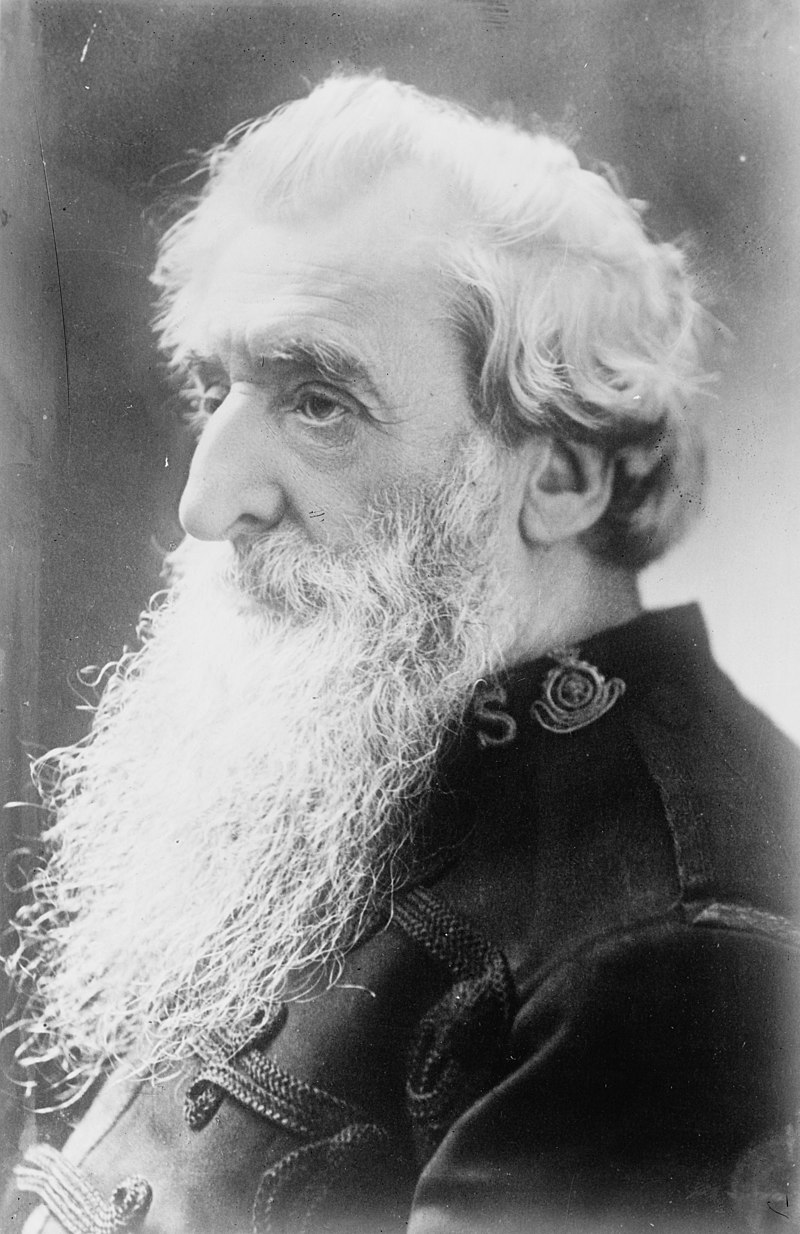 Faithful with Little
Faithful with Little
How often have you heard the phrase, "a penny for your thoughts"?
Particularly in my younger days, I frequently found myself immersed in my own little world. Yet, have you ever pondered the true significance of a penny?
Regardless of whether it's a small amount or a substantial sum, what is crucial is how we steward what is entrusted to us.
Today's message on stewardship and heavenly storehouses finds its foundation in a specific biblical narrative. Let us explore Luke 16:1-13 from the Amplified Bible, where Jesus narrates the story of a rich man and his estate manager, who was accused of squandering his master's assets. The rich man demands an accounting from the manager, leading to a cunning plan by the manager to secure his future by reducing the debts owed to his master. Intriguingly, the master commends the manager for his shrewdness. Through this parable, Jesus imparts lessons on the importance of being faithful in small matters and the impossibility of serving two masters – God and wealth.
"Also [Jesus] said to the disciples, There was a certain rich man who had a manager of his estate, and accusations [against this man] were brought to him, that he was squandering his [master’s] possessions. And he called him and said to him, What is this that I hear about you? Turn in the account of your management [of my affairs], for you can be [my] manager no longer. And the manager of the estate said to himself, What shall I do, seeing that my master is taking the management away from me? I am not able to dig, and I am ashamed to beg. I have come to know what I will do, so that they [my master’s debtors] may accept and welcome me into their houses when I am put out of the management. So he summoned his master’s debtors one by one, and he said to the first, How much do you owe my master? He said, A hundred measures [about 900 gallons] of oil. And he said to him, Take back your written acknowledgement of obligation, and sit down quickly and write fifty [about 450 gallons]. After that he said to another, And how much do you owe? He said, A hundred measures [about 900 bushels] of wheat. He said to him, Take back your written acknowledgement of obligation, and write eighty [about 700 bushels]. And [his] master praised the dishonest (unjust) manager for acting shrewdly and prudently; for the sons of this age are shrewder and more prudent and wiser in [relation to] their own generation [to their own age and kind] than are the sons of light. And I tell you, make friends for yourselves by means of unrighteous mammon (deceitful riches, money, possessions), so that when it fails, they [those you have favored] may receive and welcome you into the everlasting habitations (dwellings). He who is faithful in a very little [thing] is faithful also in much, and he who is dishonest and unjust in a very little [thing] is dishonest and unjust also in much. Therefore if you have not been faithful in the [case of] unrighteous mammon (deceitful riches, money, possessions), who will entrust to you the true riches? And if you have not proved faithful in that which belongs to another [whether God or man], who will give you that which is your own [that is, the true riches]? No servant is able to serve two masters; for either he will hate the one and love the other, or he will stand by and be devoted to the one and despise the other. You cannot serve God and mammon (riches, or anything in which you trust and on which you rely)."
This parable reveals several profound truths. First, it challenges our ability to handle greater responsibilities if we falter in managing smaller ones. Second, it underscores the impossibility of serving two masters with equal devotion. Third, as also illustrated in the parable of the talents, it emphasizes our role as stewards of what we possess, as everything ultimately belongs to God.
The narrative suggests that earthly connections and resources are of little value if we fail to be good stewards of the modest amounts that God entrusts to us. How, then, can He trust us with the riches of heaven?
Mismanagement and failure to yield expected returns can indeed be viewed as a form of theft. Relying on our own riches leads to an uncertain future.
Let's reflect on some enlightening proverbs, which I highly recommend for their wisdom.
Proverbs 3:9-10 (KJV) instructs us to honor the Lord with our substance, promising abundant blessings in return.
"Honour the Lord with thy substance, and with the firstfruits of all thine increase: So shall thy barns be filled with plenty, and thy presses shall burst out with new wine."
Proverbs 10:2-3 (AMP) contrasts the fruitlessness of ill-gotten wealth with the life-saving power of righteousness.
"Treasures of wickedness profit nothing, but righteousness (moral and spiritual rectitude in every area and relation) delivers from death. The Lord will not allow the [uncompromisingly] righteous to famish, but He thwarts the desire of the wicked."
Proverbs 15:6 (AMP) speaks of the great treasure in the house of the righteous, while Proverbs 18:10-12 (KJV) contrasts the security found in the Lord with the deceptive security of wealth.
"In the house of the [uncompromisingly] righteous is great [priceless] treasure, but with the income of the wicked is trouble and vexation. The name of the Lord is a strong tower: the righteous runneth into it, and is safe. The rich man's wealth is his strong city, and as an high wall in his own conceit. Before destruction the heart of man is haughty, and before honour is humility."
These scriptures underscore the importance of obedience to God and being excellent stewards.  Good stewardship involves taking ownership of what is entrusted to us, treating it as if it were our own. Reflecting on our theme scripture from Luke 16, we realize that time is one of the most valuable assets entrusted to us. Even a minute, seemingly insignificant like a penny, adds up over a lifetime. The average American life expectancy is 76 years, and if we start making conscious decisions for Christ at 16, we have 60 years of service. Consider the cumulative impact of how we spend each minute of our day.
Good stewardship involves taking ownership of what is entrusted to us, treating it as if it were our own. Reflecting on our theme scripture from Luke 16, we realize that time is one of the most valuable assets entrusted to us. Even a minute, seemingly insignificant like a penny, adds up over a lifetime. The average American life expectancy is 76 years, and if we start making conscious decisions for Christ at 16, we have 60 years of service. Consider the cumulative impact of how we spend each minute of our day.
Let’s have a closer look, as said at 16 years of age we are old enough to drive, thus let's take this age to make an honest decision for Christ which gives us 60 years in His service.
In a day we fool around for about 4 H a day, we sleep 8 H and we have 12 H of productivity or semi-productivity. A minute here and a minute there over those twelve hours is 720 minutes in 12 H.
Which comes down to 262,800 Minutes per year thus 60 Years is 15,768,000 minutes. oh yes, I almost forgot, in 60 years we have 15 leap years, which adds an additional 15 days, thus it makes in total 15,778,800 minutes, or? would we say just a penny.
Luke 16:11 (CEB) challenges us: If we are not faithful with worldly wealth, who will trust us with true riches? God, who exists outside our temporal constraints, sees our full potential. We are of immeasurable worth to Him, far beyond mere monetary value.
"If you haven’t been faithful with worldly wealth, who will trust you with true riches?"
Our God, in His omnipotence, transcends the confines of human time. He is intimately familiar with every moment of our lives, from the instance of our birth to the inevitability of our passing. He is the Alpha and Omega, embodying both the beginning and the end.
In the eyes of God, our value far surpasses the triviality of a mere penny. He perceives us not as we perceive ourselves, limited and insignificant, but in the fullness of our true potential. To Him, we are infinitely more precious than a mere collection of coins, be it 15,778,800 pennies or even a billion. Our worth, in His divine estimation, is immeasurable and incomparable, far exceeding any earthly treasure.
Matthew 10:28-33 (CEB) reminds us not to fear those who can harm the body but cannot touch the soul. Instead, we should revere God, who cares for us deeply, valuing us more than many sparrows. Acknowledging Christ before others ensures His acknowledgment of us before the Father.
"Don’t be afraid of those who kill the body but can’t kill the soul. Instead, be afraid of the one who can destroy both body and soul in hell. Aren’t two sparrows sold for a small coin? But not one of them will fall to the ground without your Father knowing about it already. Even the hairs of your head are all counted. Don’t be afraid. You are worth more than many sparrows. Therefore, everyone who acknowledges me before people, I also will acknowledge before my Father who is in heaven. But everyone who denies me before people, I also will deny before my Father who is in heaven."
Being good stewards of God's gifts – our time, talents, and lives – opens up heavenly riches. The prophets have declared it, and God reaffirms it repeatedly. Time spent for God, labor in His service, and love shared with others are investments in heavenly treasures. The dividends belong to the Lord, and when we need them, He will unlock the storehouses of heaven to shower us with blessings.
Malachi 3:10-11 (CEB) and Deuteronomy 28:12 (KJV) echo this promise, inviting us to test God's faithfulness.
"Bring the whole tenth-part to the storage house so there might be food in my house. Please test me in this, says the Lord of heavenly forces. See whether I do not open all the windows of the heavens for you and empty out a blessing until there is enough. I will threaten the one who wants to devour you so that it doesn’t spoil the fruit of your fertile land, and so that the vine doesn’t abort its fruit in your field, says the Lord of heavenly forces. The Lord shall open unto thee his good treasure, the heaven to give the rain unto thy land in his season, and to bless all the work of thine hand: and thou shalt lend unto many nations, and thou shalt not borrow."
The Common English Bible translated verse 10 of Malachi 3 with the phrase, Please test me in this.
Our God is an awesome God, and He has placed this challenge in front of us. Do I trust Him enough to cut up the credit cards, to get rid of all the debt and to not take on any more. He has already given us so much, our talents, our time, do we test Him on this?
First Lady Wilma and I have embarked on a journey of faith, continually testing the Lord's promises. Yet, we often find ourselves reverting to old habits. Our contemporary society has shifted away from the godly principle of accumulating wealth through saving and giving; it now leans heavily towards accruing wealth through borrowing. This raises a pertinent question: who truly benefits from this system? Is it the individual, or is it the credit card companies reaping the profits?
Indeed, as I mentioned earlier, our trials have revealed God's unwavering faithfulness. The storehouses of heaven have opened in response to our faith. However, we recognize our human frailty and the need for persistent prayer to strengthen our resolve. Our ultimate aim is to place our complete trust in the Lord, dedicating a portion of everything we have – our time, labor, and finances – as a tithe to Him. This aspiration is lofty and challenging to achieve. We are far from reaching this goal, but we are committed to striving for more, to do better. I long to witness the gates of heaven's storehouse swing open for us. What about you? Are you prepared to experience the miracle that even a minute of your time, a small act of giving, can bring?
I propose a challenge: if you possess four credit cards, focus on paying off one and then cut it up. If you're accustomed to paying $100 monthly on a card, redirect $50 of that amount into savings and allocate the remaining $50 to pay off the next card. From your savings, dedicate 10% to God – not merely because the church needs it, but as a gesture of gratitude for His blessings. Continue this process, creating a snowball effect, until all your debts are cleared. You'll be amazed to find yourself with more financial freedom than ever before. And in doing so, God will bless you, for your focus is on His plan, not merely on worldly gain.
This strategy is not a whimsical idea; it aligns with God's plan for our lives, teaching us to be prudent stewards of the resources He has entrusted to us. Our journey is marked by both growth and setbacks, yet I am confident that with the Lord's guidance, we will ultimately succeed.
God knows each of us intimately; He understands our hearts. When we commit wholeheartedly to His path, He recognizes this dedication and blesses us accordingly. This path is not a shortcut to wealth but a long journey towards recovery – recovery from negative thinking, from mismanaging our talents, time, and finances. Participating in God's recovery program is challenging, but the rewards are profound and lasting.
The Apostle John captured the essence of this journey in the words of Jesus, reminding us of the deeper purpose and the eternal value of our endeavors.
John 6:26-29 (AMP) records Jesus' words about seeking Him not for material benefits but for the eternal sustenance He offers. Believing in Him and trusting His word brings a fulfillment that never disappoints.
"Jesus answered them, I assure you, most solemnly I tell you, you have been searching for Me, not because you saw the miracles and signs but because you were fed with the loaves and were filled and satisfied. Stop toiling and doing and producing for the food that perishes and decomposes [in the using], but strive and work and produce rather for the [lasting] food which endures [continually] unto life eternal; the Son of Man will give (furnish) you that, for God the Father has authorized and certified Him and put His seal of endorsement upon Him. They then said, What are we to do, that we may [habitually] be working the works of God? [What are we to do to carry out what God requires?] Jesus replied, This is the work (service) that God asks of you: that you believe in the One Whom He has sent [that you cleave to, trust, rely on, and have faith in His Messenger]."
In conclusion, being a good steward of what God has given us is a journey of growth, trust, and obedience. It's about managing our resources wisely, not for immediate gratification, but for eternal rewards. Let us embrace this challenge, trusting in God's plan and His unfailing provision.
Amen.








 mind for a considerable duration. The profound notion embedded in this simple sentence has been recurring.
mind for a considerable duration. The profound notion embedded in this simple sentence has been recurring. Why must we comprehend the Holy Spirit? Because the Ruach Ha'Kodesh—meaning "the Breath, the Spirit of God" in Hebrew—has been given to us. Many fail to recognize this divine force, leading to fear and confusion in the face of worldly events. Lack of understanding of the Spirit of God makes us more vulnerable to fear, unable to compare our mortal struggles to His almighty power and strength.
Why must we comprehend the Holy Spirit? Because the Ruach Ha'Kodesh—meaning "the Breath, the Spirit of God" in Hebrew—has been given to us. Many fail to recognize this divine force, leading to fear and confusion in the face of worldly events. Lack of understanding of the Spirit of God makes us more vulnerable to fear, unable to compare our mortal struggles to His almighty power and strength.